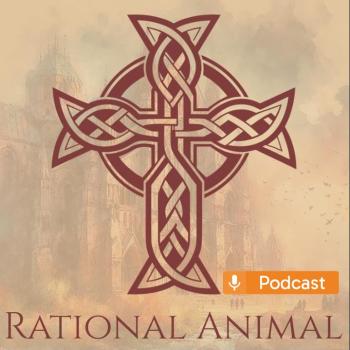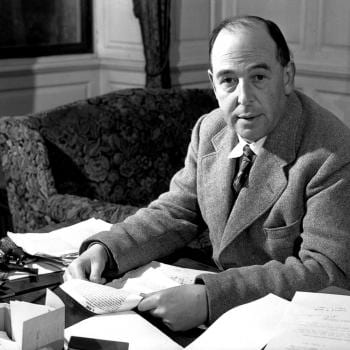We interrupt our series on how the private consensus is unraveling (#TPCIU) to make a few comments on the recent allegations of plagiarism on the part of Mars Hill Church’s Pastor Mark Driscoll. The story in toto can be found here on Christianity Today. Blow-by-blow chronicles can be found on Jonathan Merritt’s pieces on Religion News Service here, here, and here.
Here’s the long and short of it. On November 21, radio-show host Janet Mefferd accused Mark Driscoll of plagiarizing sections of Peter Jones’s account of paganism in his Call to Resurgence. After also alleging that Driscoll hung up with her during the call, she then put out more allegations that he had also plagiarized D.A. Carson’s commentaries on 1 and 2 Peter, while also lifting material for Real Marriage and Who Do You Think You Are? (compliments to Another Slice, also cited heavily in the CT piece). But in a strange turn of events, Mefferd then retracted the comments in an apology on her Wednesday show on December 4, which in turn prompted the resignation of her part-time assistant producer, Ingrid Schlueter, with a statement that, for not saying too much, says a lot (and thus has also subsequently been retracted).
With Jonathan Merritt on the hunt for more information (CT’s Kate Tracy says, ‘Merritt is trying to find out more), it is perhaps time for us at Religion Ethnicity Wired to weigh in with an observation: following the imperative in geographies of religion to suss out how the world remains constituted by ‘grounded theologies,’ the grounding of a central point in Mark Driscoll’s neo-Reformed theology is on full display in what looks increasingly to be a public conversation in the grip of legal wrangling.
The theological point in question? Forensic justification.
For those not in the Reformed know (remember this?), forensic justification is pretty much what most evangelical Protestants would call ‘justification’ if they knew the term and ‘salvation’ if they didn’t. Drawing from Martin Luther’s interpretation of the disputes in St. Paul’s letter to the Romans as that of a law court, forensic justification is the theological understanding that one is declared righteous before God through faith alone in Jesus Christ. Eschewing a form of justification by ‘works’ (whether by sacraments or good deeds), faith alone means that the sheer act of placing one’s full trust in Jesus Christ enacts the divine-legal mechanism by which God the Father declares the ‘faithful’ individual righteous (or just, depending on your translation of δɩκαɩοσύνη). In short, the one who is guilty is declared righteous by fiat through faith alone (I got ‘fiat’ from Barth, if you really wanted to know). The righteousness is thus forensic, that is, legally imputed without reference to the actual state of the guilty party. It is, in short, a legal fiction.
Following this legal reading of St. Paul, this legal fiction of righteousness is in turn explained through the death of Christ. Having once preached some fairly wrathful sermons on this note, it would be fair to say that Mark Driscoll is in favour of the recovery of the English word propitiation for the Greek ἱλαστήριον (Rom. 3.25), which is alternatively translated ‘sacrifice of atonement’ in other English translations. Propitiation, as Driscoll would have it, gets at what he understands atonement to be, which is that the furious wrath of God directed toward sinners is then directed at Jesus Christ nailed on the cross, sacrificed in substitution for the sin of those to whom righteousness is imputed. The legal fiction thus becomes a legal reality insofar as someone still has to be guilty and bear wrathful punishment. To bring René Girard into this discussion, there has to be a ‘scapegoat’ somewhere.
Moving back to the plagiarism charges, then, I would like to suggest that Mark Driscoll has received forensic justification because the wrath he should have incurred has been directed elsewhere.
The strange turn of events on the Janet Mefferd Show points to the possible intervention into this public conversation by lawyers. By posting the incriminating evidence and by making the allegations in her interview with Driscoll, Mefferd may have defamed Driscoll’s character, directing the wrath of a slander and libel suit against her. Of course, without evidence that even Jonathan Merritt is finding difficult to uncover, we do not know whether there is actually a legal suit pending. But it does bear noting that the apology suddenly, out of the blue, reinforced the private consensus:
I now realize the interview should not have occurred at all. I should have contacted Tyndale House directly to alert them to the plagiarism issue. And I never should have brought it to the attention of listeners publicly. So I would like to apologize to all of you and to Mark Driscoll for how I behaved. I am sorry.
Allow me to translate speculatively: ‘I realize that what I was saying could bring incriminating charges against me, my station, and my staff for defamation of character. I should have made sure that the publishers would not sue me by contacting them via a private channel first. I am regretting this now because I can only retract the evidence that I posted, but not what I said to my listeners, who have already heard it. I am on the receiving end of something legal.’
But from where might the legal charges be coming? Check out the resigned assistant’s statement:
All I can share is that there is an evangelical celebrity machine that is more powerful than anyone realizes. You may not go up against the machine. That is all. Mark Driscoll clearly plagiarized and those who could have underscored the seriousness of it and demanded accountability did not. That is the reality of the evangelical industrial complex.
Schlueter then goes on to talk about how she is ‘limited in what she can say’ and that ‘Big Publishing’ goes out of its way to protect ‘its celebrities.’ There is a reason these comments have been subsequently taken down: they point us in the direction of where possible the legal fiction of exchanging Driscoll’s alleged guilt with Mefferd’s innocence could be derived. It may not be that Mark Driscoll has personally hired a lawyer, though his silence on the whole issue suggests that he may be legally shutting up. It is rather that his publisher, which has already stated that it has gone through an internal review after which they ‘feel confident that the content in question has been properly cited in the printed book and conforms to market standards,’ is now taking legal action to defend the integrity of its review. Its interest in protecting Driscoll is, in short, to protect itself. The fallout implication, after all, would be that they are a press without integrity, and if that were to become a scandal, it could bring down what Schlueter calls the ‘evangelical industrial complex.’
In short, the whistleblower now must be made to take the blame for the system to continue. The evidence must be erased. The accused plagiarist must be justified by fiat.
The question, of course, is why it is that Janet Mefferd buys into this legal fiction. After all, Mefferd’s assistant seems to have resigned because she apologized; it appears to be, in short, a resignation out of protest. As it turns out, The Janet Mefferd Show is a show dedicated mostly to Christian talk on the right of the political spectrum. While this incident must be very difficult for her and her staff (her assistant resigned, for heaven’s sake!), the show’s most recent episodes are dedicated to American exceptionalism, comments about jihadis, and even an interview celebrating Wisconsin Governor Scott Walker’s survival of a political referendum brought against him by labour unions. While blowing the whistle on Driscoll’s alleged plagiarism, her own allegedly defamatory comments needed to run the rule-of-law test as well. In short, Mefferd may see herself as taking one for the American legal team. She may have plenty of evidence against Driscoll. But to keep law and order in America, her apology may be what it takes to keep the ideology of legality in its place.
And yet, here is exactly where we tie back into the posts on how the private consensus is unraveling. It turns out that the more that the results of private legal backroom wrangling manifest themselves in public actions, the more the press–and in turn, the public sphere–perceives that this case is increasingly subjected to legal fictions, ones that forensically justify an accused plagiarist against whom substantial evidence has been gathered while exchanging the wrath that should be his to take toward his whistleblower. Such a legal fiction requires the removal of the evidence ‘as far as the east is from the west,’ as the psalmist (103.12) might say. It requires someone to stand in Driscoll’s place to take the guilty charge. It takes the silencing of all contrary narratives, from a statement that can’t say anything to unreturned emails and ‘no comments’ on all sides. Such grounded forensic justification necessitates, in short, the private consensus.
Yet it is precisely here that the private consensus that is unraveling before our very eyes. The more that is posted, the more that the readers will conclude that the apologies are fictional, that the allegations of defamation are part of a legal fiction to maintain an evangelical industrial complex and the complexities of rule of law, and that there is a concerted attempt to fictionally dismiss the charges of plagiarism for which there has been a circulation of evidence and legal comments over the past two weeks. If such forensic justifications require a private consensus, then this unwavering public conversation may be untying its knotty threads. In short, moves to protect the privacy of this situation may serve only to blow the story bigger. As that happens, the public may well demand that the legal fictions be replaced with moral realities. And if that were to happen, the evangelical industrial complex may itself be called into serious moral question.
UPDATE: It has recently come to our attention that Salem Radio and Tyndale House Publishers are partners, that is to say, Mark Driscoll’s book publisher is in fact a partner with The Janet Mefferd Show’s host. To the extent that this is a conflict of interest, we at Religion Ethnicity Wired are uninterested in commenting. Instead, we would comment that this perhaps facilitates the participatory dimensions of a soteriology whose emphases on substitution have obfuscated other salvific angles.
UPDATE #2: We are thankful for careful readers, especially our friend Artur Rosman at Cosmos the in Lost, who have pointed out that a discussion of forensic justification should have at least mentioned the Protestant doctrine of ‘imputed righteousness.’ While this discussion has been implicitly had in our discourse on ‘fiat’ and the ‘great exchange’ between Driscoll and Mefferd, we also recognize that the doctrine of imputation requires a longer discussion on the late medieval concept of ‘merit.’ Suffice it to say that this post on forensic justification hints at imputation precisely because the legal fiction depends on Driscoll being imputed with righteousness because, as I wrote, ‘the legal fiction of exchanging Driscoll’s alleged guilt with Mefferd’s innocence’ suggests precisely an exchange of merits. We apologize for this doctrinal oversight and are thankful for peers who review our work and hold us accountable.
UPDATE #3: We continue to be thankful to careful readers who point us to leads and angles that we may not have previously considered. @LouiseWeeds on Twitter told me to check Schlueter’s ‘history.’ Wenatchee the Hatchett has picked up a comment on the Jonathan Merritt post precisely on this point, and there is now an ongoing discussion about Schleuter’s reliability. Certainly, this adds a complication to the mix. However, let me make two observations. First, while Schleuter certainly has a ‘history’ of what Archbishop Justin Welby would call ‘not invariably warm and cuddly’ remarks toward Driscoll, to chalk this up to a conflict of interest is a bit of a stretch, as there does not seem to be any material interest at stake (at the moment; good readers, correct me if I am wrong on this score). The second observation follows from this: it’s remarkable how in each of these cases of the private consensus unraveling, there are invariably moves to take the conversation into the private sphere precisely by appealing to private self-interest. However, that all of these issues have percolated to the surface due to the circulation of this story in an evangelical public sphere reinforces the point of this post, which is that the private consensus in evangelicalism is unraveling. We are thankful to our careful readers for pointing out these angles that we haven’t considered, and we certainly hope that this post will be a stimulus for further conversation on both the unraveling of the private consensus and the constant temptation to reinforce the private consensus at the same time.
UPDATE #4: Christianity Today has obtained a statement from InterVarsity Press saying that Driscoll’s material on 1 and 2 Peter was ‘improperly’ copied. Jonathan Merritt has updated his story accordingly, and so have we now. A comment from Mark Driscoll is pending.
UPDATE #5: Thanks to the efforts of Patheos blogger Warren Throckmorton, Jonathan Merritt was able to write on a ‘released’ statement that acknowledged citation errors in an in-house booklet that was then later published. The plot thickens.
















